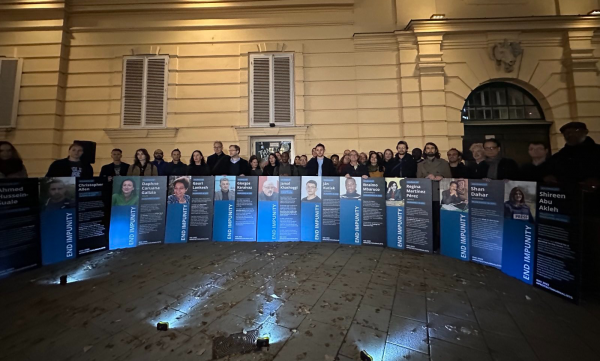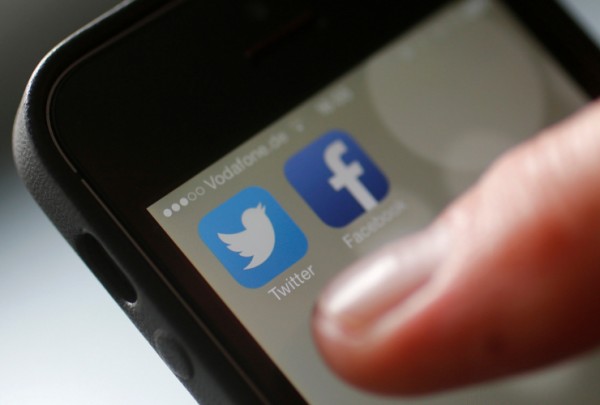Journalist Khaled Sid Mohand, a reporter for French newspaper Le Monde and Radio France, participated in a Q&A with the International Press Institute (IPI) and Wissam Tarif of human rights NGO Insan about the 23 days he spent in a Syrian detention facility. Arrested in a Damascus café on 9 April, Mohand was held for nearly a month before being released to the Algerian embassy. At no point was he told why he was detained, or why he was being released. His words give us some sense of the treatment that journalists, bloggers, activists and others in Syrian detention could be facing – and of the courage that so many, like Mohand, have shown.
IPI welcomes Khaled Sid Mohand’s release, but continues to call for the immediate release of all journalists who are currently in detention in Syria, and for information about the prisoners’ safety and whereabouts:
Q: Where did they arrest you?
A: In a café called “Domino,” located in Bab Touma Square.
Q: How did they arrest you?
A: I was trapped: a young women I never heard before called me saying that she had information to give me. She knew that I was a journalist; she asked me to bring my computer with me. We met half an hour later, in the café I mentioned, where seven men came to arrest me.
Q: Did they have weapons and were the weapons visible?
A: They did have hand guns under their jackets, but they didn’t show them.
Q: How did they transport you?
A: In a yellow cab. They first took me to my house, which they searched for one hour, then they took me to the moukhabarat [intelligence services] headquarters in Kfar susse. They didn’t blindfold me, but I had to put my head between my legs [so that I wouldn’t] know where we were heading.
I eventually understood where I was detained because I wasn’t blindfolded when I was released.
Q: Did they talk to you in the car? What car was it?
A: They didn’t talk to me very much and I can’t remember what they told me, but I remember [that] they were making fun about how they got me. They were surprised that I [had come] to meet this women who I believe was a beautiful Iraqi prostitute.
Q: Did they beat you in the car?
A: No.
Q: Were you in solitary confinement?
A: Yes, in a 2 square meter cell.
Q: Did you know where you were?
A: No.
Q: Did they torture you?
A: No, I was beaten up during the first couple of days, slapped, threatened to cut my sex, to be raped. They blindfolded me and simulated electric choke by putting electric wires on different parts of my body including my sex. […] Mostly violently slapped.
Q: For how long did you stay in jail?
A: 23 days.
Q: Do you know any names of people detained there?
A: Unfortunately I don’t. We couldn’t see each other, but I could communicate with one of my co-detainees whose cell was close to mine. I only remember his first name: Hussein. He was from Edleb, north of Hama. He was a 21 one year-old conscript jailed for [being] willing to go to the weekly prayer. He didn’t even go.
He was jailed along with his friend from Raqa (north of the country). I believe and wish that Hussein left the jail one day or two before I was released. It was actually the end of his military service.
Q: How many different voices or names did you hear? How many other prisoners did you see?
A: I also communicated with a young man named M’hamed who was arrested during the demonstration that took place in Zablatani and another one in a demonstration that took place in a Damascus neighbourhood called Keddam, but I can’t remember his name. Both of them were severely whipped and it’s been very difficult for Hussein and I to get in touch with them.
Q: What message is the Syrian government trying to send to journalists covering the unrest, if any?
A: “Get […] out of here!”
Q: Do you have any sense of what effect the lack of news media coverage is having on the protestors, and on the authorities trying to control them?
A: One of the effects could be to reinforce the propaganda of the regime through the national media. And when there is a lack of information, then comes the time of the rumour. In any case, [it is] nothing good for the protesters.
Q: What happened when you were finally released? Were you told why?
A: I was immediately taken to the Algerian embassy, but they didn’t charge me, neither told me why I was arrested, [nor] why I was detained, nor why I was released.
Q: Are journalists from Western countries being treated differently from journalists who are from Arab countries?
A: I don’t know how the Western journalists were treated, but it is true that they might perceive us as traitors, as all the Arabs from Morocco to Iraq are allowed to step into the country without visa. And these kinds of activities could be perceived like: we took advantage of their hospitality.
Q: What effect is the Syrian authorities’ treatment of journalists having on its public image?
A: Syria always had a bad image regarding this issue so it doesn’t change much.
Q: How long had you been living in Damascus before you were arrested, and do you intend to return there?
A: I lived there for two and half years. I left my friend and the major part of my stuff. As I chose to testify, I don’t even think that they would let me go back. But I want to go back as soon as the situation becomes safer.


